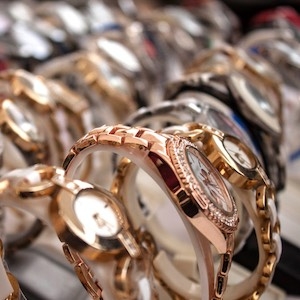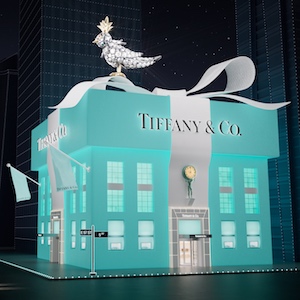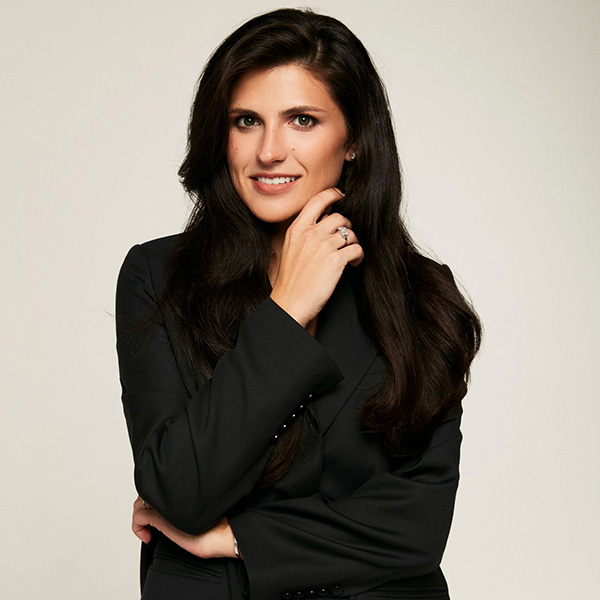
Julia Kusher describes herself as a city girl, an economist by trade, and now a jewelry fanatic—and all those aspects of her life contributed to this small-town Ukrainian kid ending up as the founder of a lab-grown diamond jewelry company.
Moving from her village to the city of Zaporizhzhya for her education helped her get into college in Kyiv, where she earned an economics degree. Her work as an economist led to a job as commercial director at Kyiv’s Alkor-D diamond factory, which pushed her to study diamonds and fine jewelry.
In 2018, Kusher created Solo for Diamonds, a jewelry line that uses lab-grown diamonds. She says she wants the brand to serve as a bridge for women like herself who previously saw diamonds as too formal or not their style, and to celebrate “conscious luxury” through her minimalist jewelry designs. Its diamonds come from parent company Alkor-D, which Kusher says is the biggest diamond plant in Europe, supplying multiple high jewelry brands around the world.
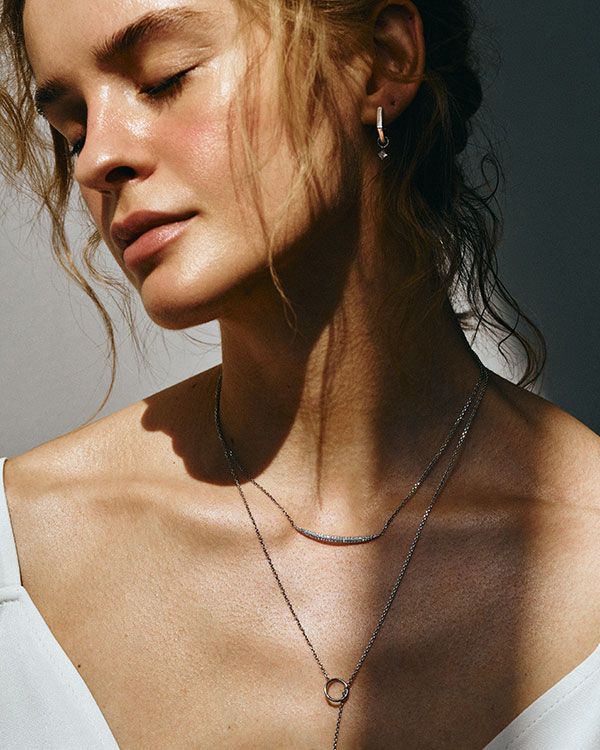
“I have realized how much beauty is hidden in these precious stones, how many factors affect the final result, how much effort people put into it. It’s really fascinating,” Kusher says. “It’s a titanic job to get the product that will be appreciated by everyone.
“Lab-grown diamonds are an ideal alternative to classic mined diamonds, because with the same properties they are more affordable,” she says. “I began to think that it was necessary to establish a brand that would give us this opportunity to enjoy diamonds that would be more affordable and would also be Ukrainian.”
Her path to success started back when she was 12 and made the decision to leave her village for Zaporizhzhya to attend a school with a strong English program. “It wasn’t easy being a young girl in a city with a million people when I’d never lived in a city before,” Kusher says. “But honestly I wouldn’t trade that experience for anything. It taught me a lot about myself and made me realize I can handle pretty much anything on my own. It was a big life lesson and one I’m really thankful for.”
After her college graduation, Kusher taught international economics for a short time. Teaching gave her a sense of purpose, pushing her toward her own personal and professional transformation, she says.
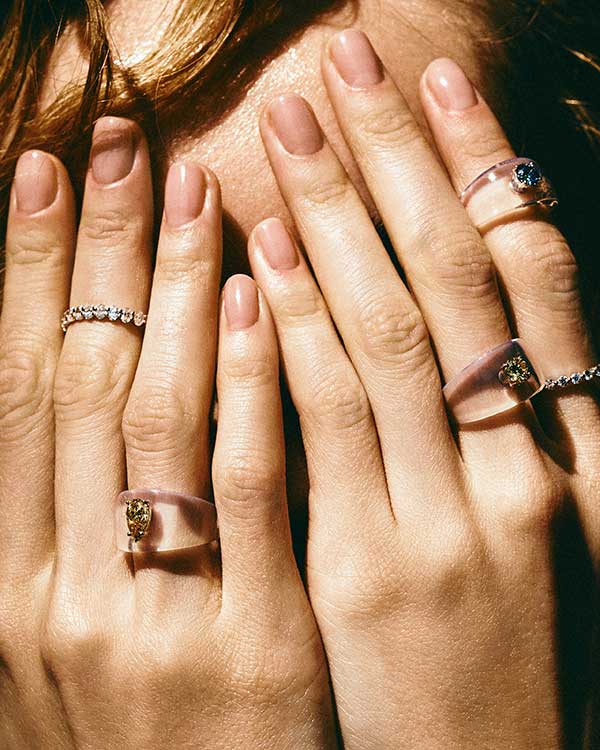
“It was a gratifying experience to witness the growth and success of those I had the privilege of guiding,” Kusher says. “It was a fun experience, but I quickly realized that I was more into the practical side of business than just theory.”
Kusher worked for a few companies as an economist and at the Ukrainian TV channel 1+1 buying licensing rights for movies and television series. When she was offered the job as commercial director at Alkor-D, it felt like a shift, but she thought her acquisitions experience and knowledge would transfer easily.
“I mean, buying is buying, right, whether it’s TV rights or diamonds?” she says, laughing.
She was wrong; there was a steep learning curve, Kusher admits. She had never worn diamonds, and her husband taught her the little she knew about cut, color, and clarity when he bought her a pair of diamond earrings after their child’s birth, a Ukrainian tradition.
Lucky for her, Alkor-D was like a startup, with many employees new to the work of manufacturing and selling diamonds. At that time, the lab-grown diamond market in Ukraine was virtually nonexistent, Kusher says. She went back to school to become a gemologist.
“I needed to know this stuff to make smart decisions,” she says. “It was a challenge. It took some time, but after eight years, I can confidently say I’ve gained enough experience to manage the company successfully.”
Kusher says her main takeaway from her early years in jewelry is the importance of truly understanding what you’re doing and why.
“You can’t assume that the same process works for every business, especially with purchases. Each industry has its unique quirks and details, and you need to consider all of them,” she says. “And let’s not forget patience. When you’re starting out, nothing seems to go as planned. You have to be patient enough to understand that growth takes time.”
Top: Julia Kusher is an economist who now leads the lab-grown diamond jewelry company Solo for Diamonds. (Photos courtesy of Solo for Diamonds)
Follow me on Instagram and Twitter
Follow JCK on Instagram: @jckmagazineFollow JCK on Twitter: @jckmagazine
Follow JCK on Facebook: @jckmagazine

